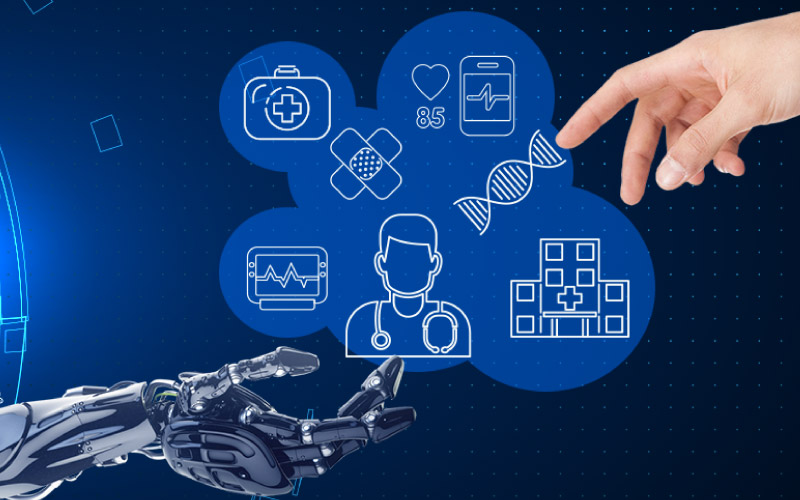“Automation is not just a labor substitution tool; it’s also an enabler of higher-quality work,” said Daniel Dines, CEO of UiPath, responsible for creating one of the most popular health screening bots to improve patient care during the pandemic. And even in 2023, this quote is as relevant as it was then.
Automation in healthcare is becoming increasingly important as the industry faces challenges related to patient care, costs, and staffing. And the rapid adoption of automation proves that this isn’t just a quick fix but is here to stay. Automation has the potential to revolutionize the industry, enabling healthcare providers to focus more on patient care and less on administrative tasks.
Here is a quick look at the impact of automation in healthcare today.
#1 Automation Improves Patient Care
Switching to automated systems eliminates the chances of human error, drastically improving patient care.
Medication errors, inaccurate patient records, prescriptions errors are the bane of the healthcare industry. Using automated medication dispensing systems can reduce the risk of delivering the wrong drugs to patients. Auto-generated and auto-updated medical record systems can also improve patient care by ensuring that a patient’s health information is complete, up-to-date and easily accessible.
Not only does automation improve the patient’s experience, but it also gives healthcare providers a better way to manage how they deliver their services. For instance, replacing legacy systems with automated appointment scheduling systems reduces wait times and help patients get the care they need more quickly. Similarly, automated reminders can also help patients stay on track with their care plans and reduce the risk of missed appointments.
#2 Cost Savings

Robotic process automation (RPA) in healthcare can help reduce costs by automating repetitive and time-consuming tasks such as data entry, appointment scheduling, and claims processing.
By automating these tasks, healthcare providers can reduce dependence on manual labor and increase the efficiency of their day-to-day operations. RPA can also help reduce errors and improve accuracy in healthcare data management, which leads to better patient outcomes and fewer medical mistakes.
On the other hand, automation can also be used to reduce the cost of healthcare for patients. For example, telehealth services can reduce the need for in-person visits and make healthcare more accessible and affordable. Automated patient reminders can also help patients stay on top of their care plans and prevent the need for more expensive interventions down the line.
#3 Improved Staffing
Automation can help address staffing shortages in the healthcare industry.
Automated triage systems can help healthcare providers prioritize patient care and make the most of their limited resources. Healthcare providers can also attract and retain staff by creating a more efficient and less stressful work environment through automation. When automated appointment scheduling systems reduce the workload of administrative staff, they can instead focus on more important tasks. Plus, automated training systems can also help hospitals and medical institution ensure that their staff is well-trained and up-to-date on the latest best practices.
#4 Improved Data Analysis
Automation can improve data analysis in healthcare by making it easier to collect, process, and analyze data to generate insights. Automated data analysis systems can also help healthcare providers identify trends and patterns in patient care and outcomes, which can help them improve their processes and outcomes over time.
In addition, automating reporting systems can help healthcare providers comply with regulatory requirements related to data reporting and analysis and check if the management is submitting accurate and timely reports to regulatory agencies.
#5 Improved Patient Experience

Automated appointment scheduling systems can improve the patient experience in healthcare by reducing wait times, improving communication, and making healthcare more accessible.
Healthcare services providers can also use automated tools to better communicate with patients, access information about their care plans, and help them feel more informed and empowered.
In Conclusion

Leveraging automation can help the healthcare industry improve efficiency, accuracy, and patient outcomes. And by using automation wisely, healthcare providers can also cut costs to better manage their limited resources.
As the healthcare industry continues to evolve, automation will likely play an increasingly important role in improving patient care and outcomes.
